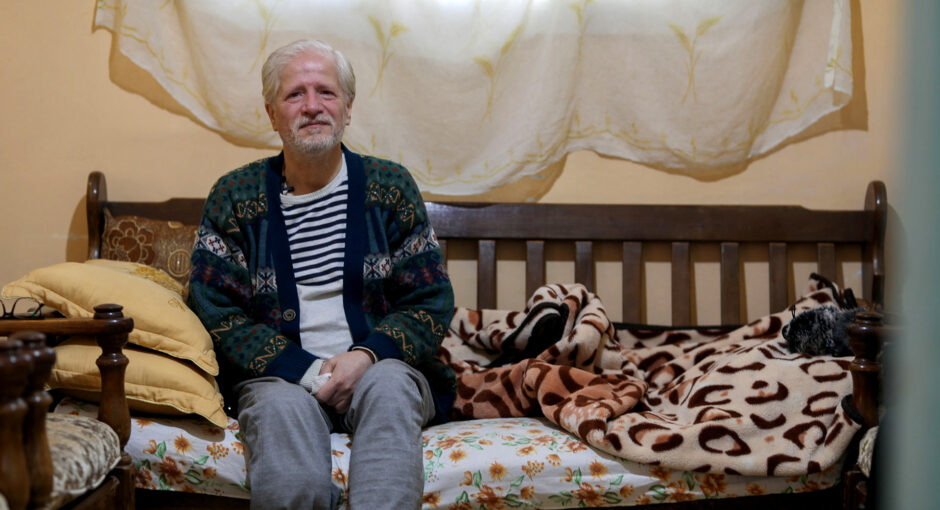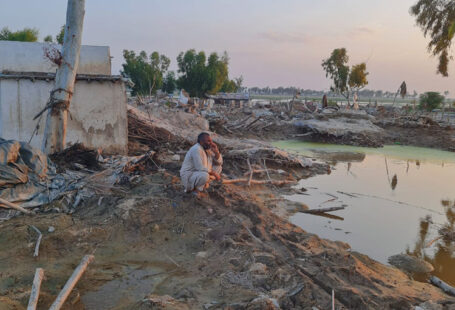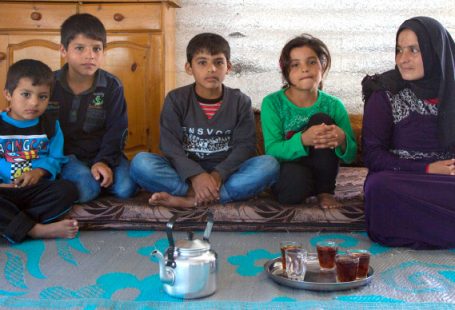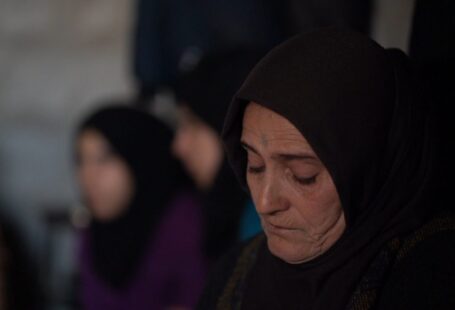Ayman, 53, fled his home in Damascus in 2012. He describes how he lived a good life in Syria before the conflict started. He owned a workshop making women’s purses and a shop to sell them. He travelled to Dubai, Libya and Syria for work, trading with customers across the Middle East and worked side by side with his brother on a daily basis. But then everything changed.
“We didn’t expect that events would happen like they did. We thought we would leave and go back after a few months. I am still shocked that it has been ten years.”
Prior to the conflict starting, Ayman had a heart surgery in 2008 but in Jordan his health quickly deteriorated. In 2013 he had to undergo more heart surgery and in 2017 he suffered a stroke. In January 2021, he had to have his lower right leg amputated due to his untreated diabetes. Ayman is still dealing with the shock and sudden implications of this amputation.
“When I came to Jordan I worked in many things. Initially I tried to work in my specialty, in a factory making purses but this turned out to be difficult. Instead, I tailored clothes, worked in a bakery, and cleaned shops. It was difficult but I was able to make a living. After my health deteriorated this is no longer possible.”
Just before the conflict started in Syria, he married Ghalia. In Jordan, it has been just the two of them looking after one another. Life has changed dramatically for Ghalia since Ayman’s leg was amputated. Previously she tended to stay at home but now she has been forced to take on all the tasks Ayman used to do for the household as well as care for his additional needs.
Ayman says that Ghalia “means everything to me,” but is distraught at the pain he has brought her through his health issues.
Every month the family receives cash assistance from UNHCR which helps Ayman to pay his rent. Since the amputation, however, they are searching for a new place to live in. The steep, narrow steps down to their current apartment are not wheelchair accessible and Ayman has only been out once in two months when he had a follow-up doctor’s appointment.
Ayman and Ghalia are one of many refugee families that struggle on the daily in Jordan where 64% of refugees survive on just less than 3 Jordanian Dinars (US$5) a day. On the first ten blessed days of Dhul Hijjah, we invite you to reflect on the conditions of refugee families in need and dedicate your Zakat or Sadaqah to them through the Refugee Zakat Fund website or through the mobile app available on the App Store and Google Apps.











Social Profiles